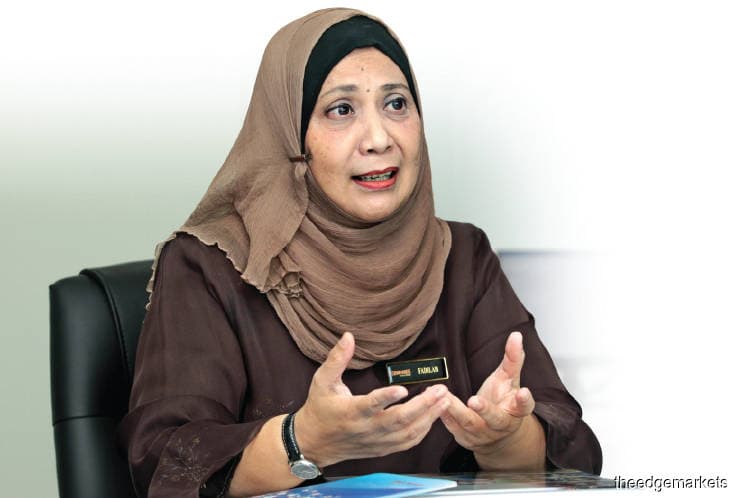
This article first appeared in The Edge Financial Daily on June 10, 2019
KUALA LUMPUR: Malaysian consumers are now generally more aware that products and services in the market should meet certain “standards” to ensure they are safe to be used, according to the Department of Standards Malaysia.
The agency’s director-general, Datuk Fadilah Baharin, said the level of awareness is noticeable as every time a new standard is shared publicly on the website, Internet users leave comments on how a standard can be improved.
“When it comes to creating standards, we work with both companies who request for standard policies to use as a form of self-policing measure, as well as government ministries who want to issue public standards to educate or impose certain rules on the market,” Fadilah told The Edge Financial Daily recently.
The department, an agency under the ministry of international trade and industry, was set up in 1996. It functions both as the national standards body as well as the national accreditation body, providing standardisation and accreditation services for global competitiveness.
A standard, which is a technical document designed to be used as a rule, guideline or definition, is created by bringing together the feedback of all interested parties such as manufacturers, consumers and regulators of a particular material, product, process or service. It must also be aligned with the rules of the World Trade Organisation, said Fadilah.
According to the department’s 2018 Annual Report, there are 5,400 standards available across 25 sectors — for example agriculture, medical devices, transport, plastic products, buildings, and power generation — though only 504 so far are mandatory for compliance.
“Others are for public references. We get many companies who request us to produce standards so they may use them to benchmark themselves against. Standards are important for businesses because they can use them to help sell their procucts,” she said.
The agency also issues accreditation certificates for specific businesses, as well as for licensed accreditation bodies, like universities and laboratories. “Accreditation is voluntary. But we work with regulators, especially the ministry of health (MoH), our biggest client, because it involves health. So, MoH needs us to ensure that any laboratory, be it for blood testing or urine testing for example, is credible and must be accredited by us,” said Fadilah.
As per its annual report, there are 724 accredited laboratories nationwide. Of this, 576 are private laboratories, while 96 are government-owned. Another 47 are public institutions of higher learning, with the remaining five being private ones. Location wise, most of the laboratories are based in Selangor — with 281 located there — while Johor and Penang both take second place with each having 73 laboratories.
“Being credible means they have fulfilled our requirements of achieving the standard. Not just for their processing plant, but also their people, their cleanliness and safety. It comes as a package,” said Fadilah.
While there are many more laboratories not accredited, possibly due to cost factors, Fadilah said the agency continually works to raise awareness on the importance of being accredited for businesses and consumers’ ease of mind.
The cost of accreditation varies with scope, with an average application cost of RM2,000. The process can last between nine months and up to two years. Once certified, the certification is good for three years.
“We also use social media to educate younger consumers on how to notice the sign [of standards] on the products they buy. In case of services, the company should display the Standards Malaysia logo. The logo itself is a selling power, it gives them (the manufacturers of the product) more credibility,” she added.
For companies who display fake or bogus certificates, actions will be taken by the domestic trade ministry, usually after receiving complaints from the public. “However, these days, I notice that the number of complaints made by the public on fake certificates has reduced, [while] the level of awareness, especially in cities, has increased,” she noted.
Fadilah said while Malaysia has come a long way in being recognised for its standardisation and accreditation, there is still more work to do to educate the mass market.
“The good thing is that our certificates are recognised worldwide and this has contributed to increased trade regionally and globally.
“Any standard that [Malaysia endorses] is trusted. If it’s a Malaysian product, people will not hesitate to buy. Why? Because Standards Malaysia has been credible in terms of integrity. We do not compromise. If it’s no, it’s no. There’s no such thing as providing an interim certificate. So, you know you can trust our certificates,” she said.